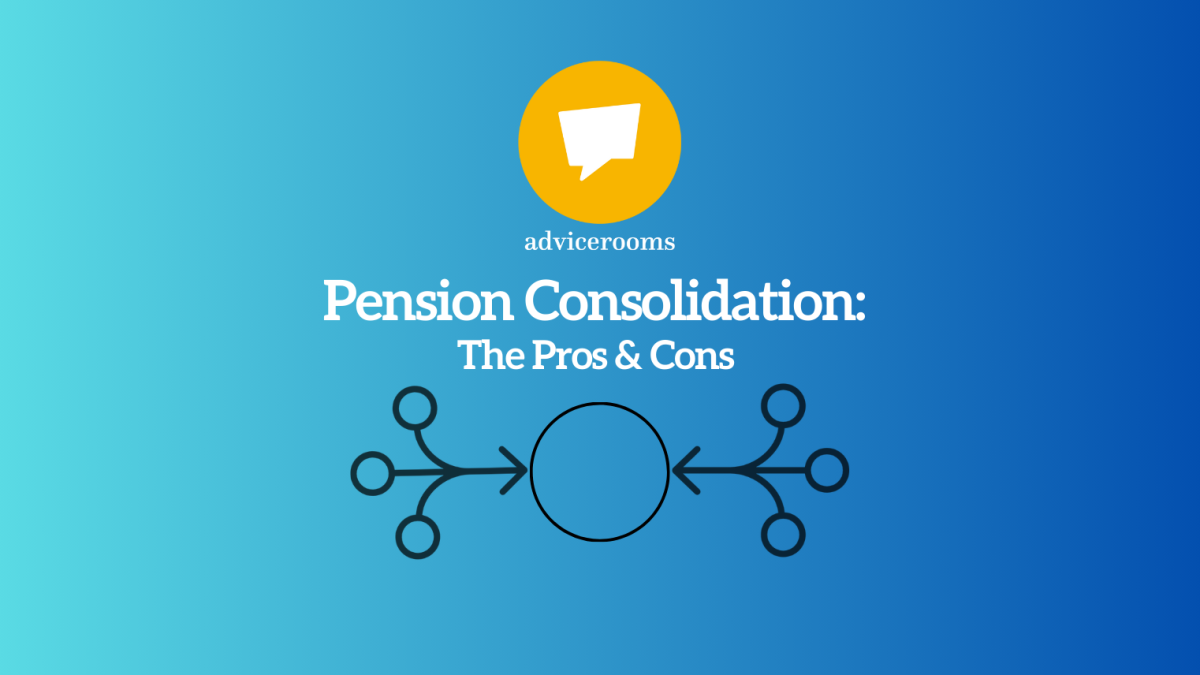
The Pros and Cons of Pension Consolidation: Is It Right for Your Retirement?
Pension consolidation can offer a more straightforward, streamlined approach when managing your retirement funds. But, like any financial decision, it has benefits and potential drawbacks. In this article, we’ll explore whether consolidating your pensions under one roof might be smart for you.
If you need clarification on the details of your current pension arrangements or if you’re seeking the best possible solution for your retirement plans, it’s essential to consult with a financial adviser. A professional can help you fully understand your options and guide you toward the most effective strategy for managing your pensions in the future.
The Potential Benefits of Pension Consolidation
Ease of Administration
One of the most appealing reasons for consolidating pensions is its simplicity. If you’ve accumulated several pension pots over the years from different jobs, keeping track of them can be time-consuming and confusing. Consolidating them into one platform can reduce the administrative burden. With all your pensions in one place, you have a single login, a consolidated view of your retirement savings, and fewer statements to worry about.
Flexible Benefits
Many older pension plans might not offer the flexibility modern platforms provide. Newer pension schemes often come with Flexible Access Drawdown, which allows you to take as much or as little from your pension as you need, rather than being locked into a fixed income for life. This could give you more control over how you manage your income in retirement, allowing you to adjust based on your circumstances.
Discounted Rates for a Larger Value
You can take advantage of discounted management fees by consolidating your pensions, especially if you have a more significant total value. Many platforms offer reduced charges for higher balances, which can add up over time, leaving you with more money in your pension pot.
Compounded Growth
Consolidating pensions also enables you to harness the power of compounded interest fully. With all your funds working together under one investment strategy, your money has a better chance of growing efficiently. This is especially beneficial for couples—platforms may offer discounts for a “Mr. and Mrs.” consolidating their pensions simultaneously, helping them maximize returns over time.
ISA and GIA Options
Some modern platforms also allow you to manage other types of investments, like ISAs (Individual Savings Accounts) or GIAs (General Investment Accounts), alongside your pension. This will enable you to manage your entire portfolio from a single platform, often at discounted rates if managed together, giving you further control over your financial future.
Investing in Line with Risk Tolerance
Another key benefit of pension consolidation is that it allows you to align your investments with your risk tolerance better. When consolidating your pensions into a single platform, you gain greater control over where your funds are invested. Many modern platforms offer investment options tailored to risk profiles, from cautious to aggressive. By consolidating, you can more easily ensure that all your pension investments match your preferred level of risk rather than having different risk strategies across multiple, scattered pensions. This helps ensure your retirement funds grow in a way that aligns with your long-term financial goals and risk appetite.
The Potential Disadvantage of Pension Consolidation
While there are many compelling reasons to consolidate your pensions, you should also be aware of potential downsides.
Loss of Guaranteed Rates
One of the most significant risks is the possibility of losing any safeguarded benefits in your existing pensions. For example, some older pensions come with a Guaranteed Annuity Rate (GAR), which could provide a higher income level than you might otherwise be able to secure from the open market. Giving up a GAR to consolidate could result in a significant loss of income in retirement.
Loss of Protected Tax-Free Cash (TFC)
Certain pensions may also offer a higher Protected Tax-Free Cash entitlement. Typically, 25% of your pension pot can be taken tax-free, but some older schemes offer more than this. Before consolidating, checking if your existing plans offer enhanced tax-free benefits is essential, as you might lose these by transferring to a new provider.
The loss of Valuable Regular Bonuses
Some pensions offer regular or terminal bonuses, particularly with final salary or with-profits schemes. These bonuses can provide an additional layer of guaranteed growth or security. Moving away from these types of pensions could mean forfeiting bonuses that would otherwise benefit you in the long term.
Potential Exit or Disinvestment Fees
Checking for any exit fees associated with transferring your pension is also crucial. Some providers charge penalties for leaving their plans early. While many modern pensions have low or no exit fees, older plans might impose significant costs that could outweigh the benefits of consolidation.
Can All Pensions Be Consolidated?
Not all pensions are eligible for consolidation. For instance, defined contribution pensions, such as personal or workplace, can be combined relatively easily. However, defined benefit pensions—like final salary or public sector pensions—often come with additional complexities and safeguards, making them unsuitable for consolidation in many cases. This is primarily because transferring out of these schemes could lead to the loss of valuable benefits, such as a guaranteed income for life or other protections tied to the scheme.
For example, pensions in the NHS, teachers’ pensions, and emergency services pensions (such as those for police, firefighters, and paramedics) often fall under unfunded public sector schemes. These pensions are designed to offer stable, lifelong income in retirement and usually include other valuable benefits such as death-in-service benefits or inflation-linked increases. Due to their guaranteed and generous nature, these pensions are generally not transferable into defined contribution plans.
Is Pension Consolidation Right for You?
Before consolidating your pensions, it is important to review your existing pensions to understand their benefits and whether you risk losing any valuable features. Consulting with a financial adviser can help ensure you make the best decision based on your circumstances, goals, and the specific details of your pensions.
In summary, pension consolidation can offer simplicity, flexibility, and the potential for cost savings, but it has risks. If you’re considering consolidating your pensions, it’s essential to weigh the potential advantages against the possibility of losing valuable benefits, such as GARs, higher tax-free cash entitlements, or bonuses. With careful planning, you can make an informed decision that sets you up for a secure and comfortable retirement.








